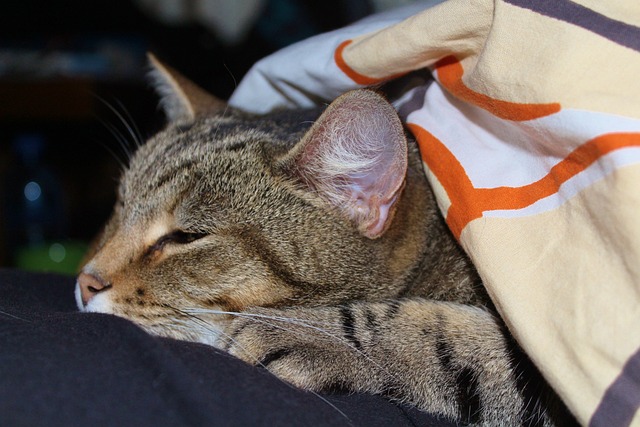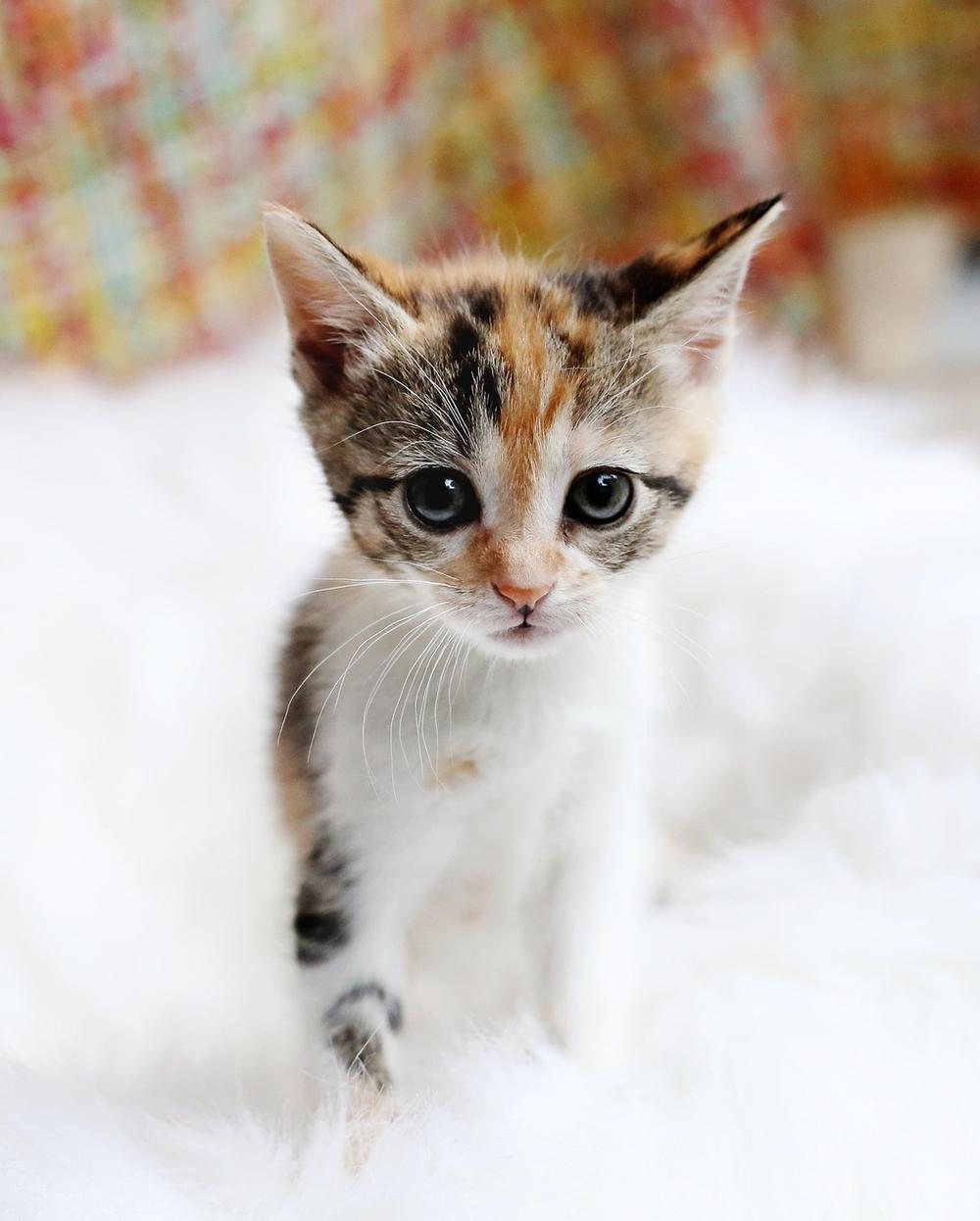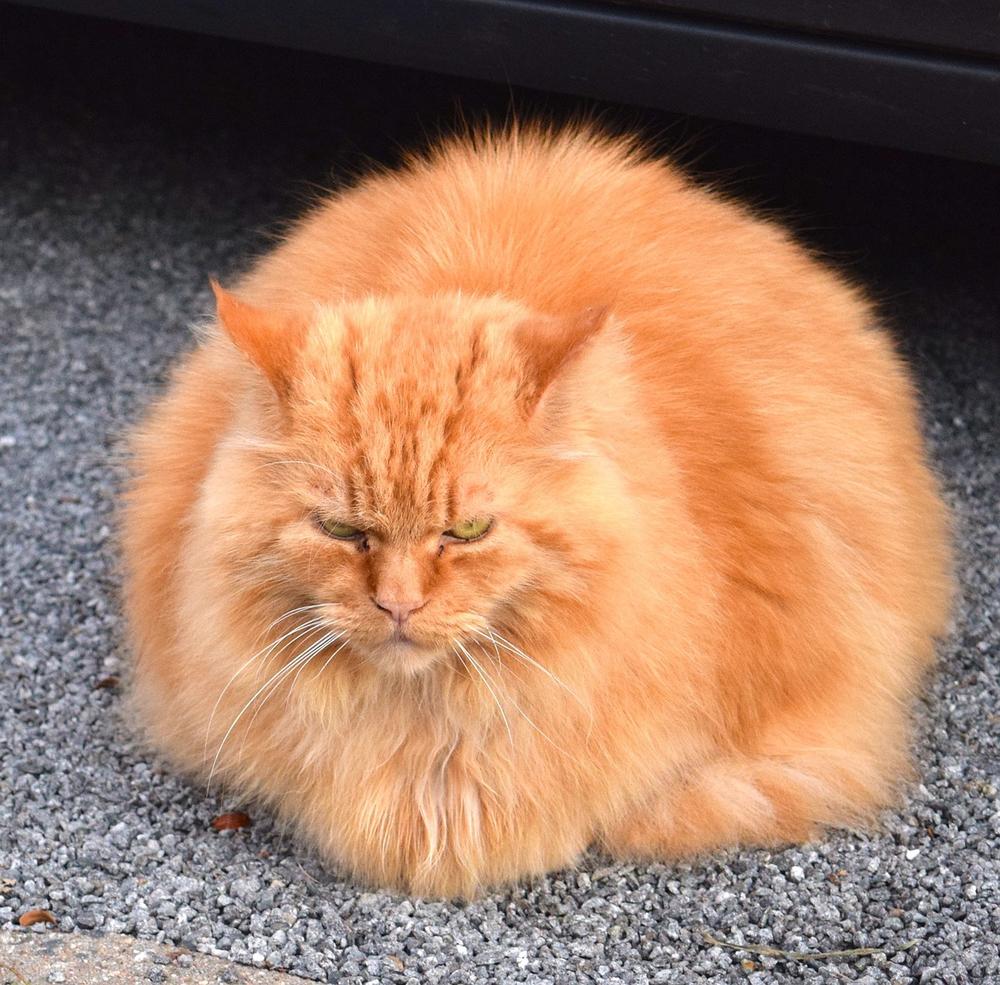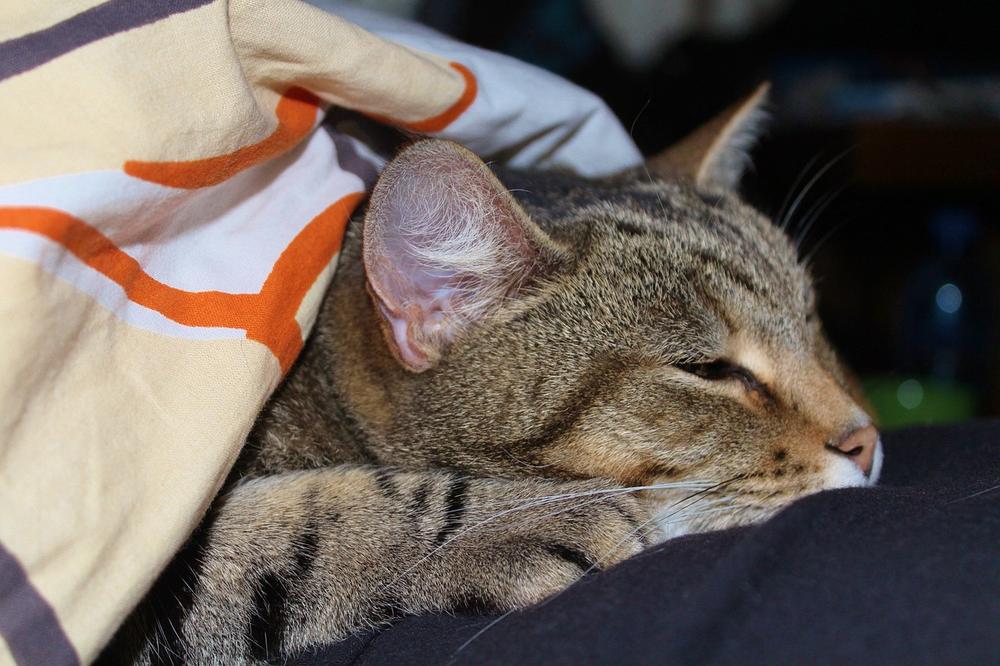Do Cats Purr When Stressed? (Understanding Cat Stress Purring)

Want to know if cats purr when stressed?
Feeling curious about their emotional expressiveness in stress?
You're not alone.
You may be thinking, "Do cats really show their anxiety through purring?" 🤔
Well, let's find out together.
Let's begin!
Cats' Purring: Self-Soothing in Stressful Situations
When cats are stressed or anxious, they naturally turn to purring as a way to cope.
Let me give you 10 reasons why cats do this:
- Purring releases endorphins in their bodies, helping them relax.
- It helps cats keep their emotions and nervous system in check.
- When faced with stressful situations, purring gives them comfort and calmness.
- Cats purr to clearly show that they're content and satisfied.
- It's a form of communication for them, especially when interacting with other cats.
- If they're injured or experiencing pain, purring serves as self-soothing.
- When confronted with fear or anxiety, purring becomes a coping mechanism.
- Purring works like magic, healing both the minds and bodies of cats.
- It strengthens the bond between cats and their beloved owners.
- Cats purr to create an atmosphere of security and well-being around them.
So, remember, whenever you hear your cat purring, know that they're finding peace amidst a chaotic world. 😺

So, as you've learned, cats have various reasons for purring in stressful situations.
But have you ever wondered if purring is involuntary or voluntary behavior in cats? If you're curious to find out more about this fascinating topic, I encourage you to check out my blog post on Is Purring Involuntary in Cats.
In this article, you'll discover the answer to your burning question and gain a deeper understanding of the complexities of our feline friends.
Fearful Felines: Decoding Cats' Telltale Purrs
Cats' purring isn't always a sign of happiness. In fact, when cats are scared or stressed, their purrs can vary. Pay attention to their behavior and the specific purring sounds they make to better understand their emotions and what they're trying to communicate.
Cats purr for different reasons, you know?
It's not just about feeling good and happy all the time.
Actually, when cats are scared or stressed out, they can purr in various ways.
Yes, that's right, purring can be a sign that your cat is anxious or frightened.
If you notice your furry buddy peeing outside their litter box, making weird noises, or acting strangely while purring, it could mean they're under stress.
Now here's the important part...

When cats want to calm themselves down, they often use higher-frequency purrs. It's like their own way of finding comfort.
But understanding cat purrs isn't just about the sound they make.
You need to pay attention to their behavior too, you see.
By watching how your cat behaves and listening to the specific purring sounds they produce, you can have a better idea of what they're trying to tell you.
So, next time you hear that familiar rumble, take a good look at your feline pal.
You might discover something surprising!
But did you ever wonder how exactly cats produce those purring sounds?
Well, let me fill you in on the fascinating mechanics behind this unique feline behavior!
How Do Cats Purr?
Cats purr, that's just what they do. But have you ever wondered exactly how they manage to make that sound?
It turns out, cats are truly fascinating creatures. When they purr, they contract and relax their larynx muscles in rapid succession.
You know those vocal cords in your throat?
Well, when cats purr, theirs vibrate like crazy.
But like with anything, there are exceptions.
Purring cats may experience difficulties with swallowing and breathing if they have issues with their larynx.
It's a bummer, but it does happen sometimes.
Now, here's something that might blow your mind: when cats purr, they do so at a frequency between 25 and 150 Hertz.
That range of sound waves is the result of their continuous purring.
And you might be wondering, why do cats purr instead of roar like other big cats?
Here's the thing—the cats that purr simply cannot roar, while the ones that roar can't purr.
It all comes down to a little bone tucked away in their vocal cords. Cats generate purring by using muscles in their larynx and diaphragm.
And here's the kicker, most cats have the ability to purr.
Yes, you heard that right, most cats can actually purr.
Can you believe how far we've come since those 19th-century taxonomists had such limited beliefs about our feline buddies?
Biological Reasons for Purring
Purring, folks, is more than just a cute sound cats make.
It's deeper than that!
You know, purring comes from the bond between kittens and their mommas during nursing.
It's a connection that goes beyond fur and claws, really special.
And get this:
Purring triggers a magical impulse in their brains that releases endorphins. Endorphins, people!
You see, purring serves several important purposes for cats' lives.
When little kitties are suckling away, purring pops out like a symphony of satisfaction.
It says, Hey Mom, this milk rocks!
But hold up, there's more!
Cats use purring as their secret weapon for bonding, communication, pain relief, and even guiding blind and deaf kittens.
Who would've guessed?
The soothing purr has healing powers, believe it or not.
It works wonders on bones, tendons, and tissue regeneration.
Plus, it does wonders for breathing too - purrs hit around 26 Hertz on the frequency scale.
Dear readers, momma cats rely on purring when giving birth and caring for their little ones.
Those tiny fluffballs start purring from a young age to chat with each other and their moms.
It's like having their own secret language.
Isn't purring just awesome?
It's like nature's very own therapy for both feline friends and humans alike.
How Does Cat Purring Help Humans?
Cat purring can actually be good for you.

Here's why:
- Reduces stress: When a cat purrs, the soothing vibrations and rhythm can help to calm you down and make you feel relaxed.
- Lowers blood pressure: Studies have shown that listening to a cat's purr can bring down your blood pressure, which is great for your heart health.
- Boosts happiness: Cat purring triggers the release of those happy hormones, endorphins and serotonin, making you feel happier and more content.
- Expresses contentment: When your furry companion purrs, they're letting you know that they are happy and comfortable in your presence.
- Provides comfort: The sound of a purring cat can offer companionship, especially when you're feeling lonely or down.
So, the next time your feline friend starts to purr, take a moment to appreciate the benefits it brings to both of you.
Enjoy the relaxation and connection that comes with this unique way of communicating. 💕
Cats' Purring: A Stress-Relief Mechanism
Key Takeaways:
- Purring is a self-soothing mechanism for cats, helping them stay calm and express contentment.
- Cats use purring as non-verbal communication to express contentment, communicate with other cats, and self-soothe during times of stress or injury.
- Purring can occur in stressful situations to help calm their minds and manage pain or fear.
- Cats may purr when stressed or anxious, indicating signs of stress such as urinating outside the litter box and changes in vocalizations and body language.
- Purring can serve as a friendly greeting to familiar cats or as a plea for attention from their owners.
- Understanding cat communication through purring involves observing their behavior and different sounds they make.
- Cats generate purring by using muscles in their larynx and diaphragm, with a frequency range of 25 to 150 Hertz.
- Purring has various benefits, including pain relief, bonding, communication, healing stimulation, and easing breathing.
- Purring can be a form of purr therapy and is used by mother cats during labor and nursing.
- Purring can also have a calming effect on humans, reducing stress levels.
And that wraps up today's article.
If you wish to read more of my useful articles, I recommend you check out some of these: Why Is My Cat Obsessed With My Face, Does Your Cat Nose Bump You, How to Make a Cat Purr, and Why Is My Cat Hiding in the Closet
Talk soon,
-Sarah Davis